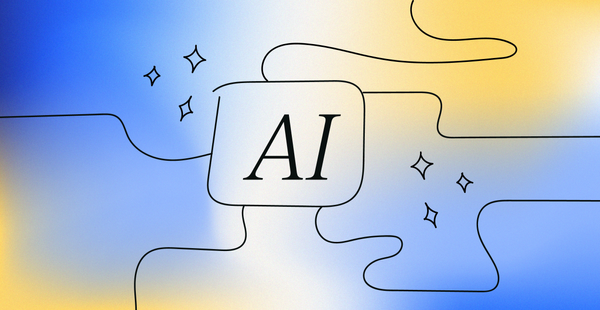ChatGPT is once again revolutionizing the AI game. And, as a product manager (PM), your game is about to be revolutionized as well. OpenAI held its first conference in San Francisco, called DevDay, and introduced its latest innovation: GPTs.
What is a GPT?
GPTs are tailored versions of ChatGPT that you can build without coding for whatever purpose you need – within reason, of course. You will now be able to create a customized version of ChatGPT with instructions, expanded knowledge, and actions that you feed it, which you will then be able to publish for others to use.
The customization comes just by having a conversation with the AI, which uses natural language to program itself. ChatGPT will be launching a store later in the month where you can also publish your no-code program and receive a portion of the sales based on how many people use it. The best and most popular will be featured. It’s all about revenue sharing.
The GPT program will be exclusive only to ChatGPT Plus subscribers at $20 a month, and available through the GPT store. The GPTs will have access to the web and a section where you can upload data. You will also be able to bring in external services, such as emails, Canva, and Zapier, to start with.
Security will remain a top priority. Creators won’t be able to see how people are using the customized chats published, and all conversations will be monitored for safety. People must also verify their identity when they create GPTs.
Customers have been asking OpenAI for ways to customize for a long time now. Gone are the days of prompts that users keep ready to copy and paste. Now is the time for a programmed GPT to meet your exact needs, giving people more control.
So, how does this transform your product game?
How to make your own custom GPT
Need a step-by-step to make your own GPT? We've got you covered.
- Log in to chat.openai.com.
- Click Explore in the sidebar.
- Click on Create GPT.
- On the Create page, enter your instructions in the message box. Be as specific as you want to get the results you want.
- Hit Configure for further customization.
- Click Save and share how you would like.
- Hit Confirm.
Made something you don't fancy? No sweat. You can delete it and try, try again with these steps.
- Click Explore in the sidebar.
- Hit the More (...) icon next to the GPT you want to delete.
- Click on Delete GPT.
- Click again Delete GPT in the confirmation window.
Now back to the drawing board!
Customized AI for product managers
Product managers are responsible for identifying market needs, developing and launching products, and continually improving them. To excel in this demanding role, PMs are increasingly turning to AI solutions to streamline their decision-making processes, enhance productivity, and ultimately drive success. So, how would customized AI benefit them even more? What gift has ChatGPT just given everyone?
Customized AI refers to the development and implementation of AI solutions that are specifically tailored to the unique needs and goals of a product management team. These solutions can range from AI-powered tools that aid in market research and product development to AI-driven analytics platforms that provide real-time insights.
Here are some ways in which customized AI can significantly benefit product managers:
Enhanced data analysis
One of the primary responsibilities of product managers is to gather and analyze data to make informed decisions. Customized AI tools can automate the process of data collection, processing, and analysis. By leveraging machine learning algorithms, product managers can quickly gain valuable insights into consumer preferences, market trends, and competitive intelligence. This not only saves time but also allows product managers to make data-driven decisions with a higher degree of accuracy.
Predictive analytics
Customized AI can enable product managers to forecast market demand and product performance with greater precision. GPTs can analyze historical data and identify patterns that may not be apparent to human analysts. This predictive capability helps product managers optimize product development and marketing strategies, resulting in a better allocation of resources and a more efficient product roadmap.
Personalized customer experiences
Product managers can leverage GPTs to enhance the customer experience by delivering personalized recommendations and content. Customized AI algorithms can analyze user behavior, preferences, and interactions to tailor product features and content, thereby increasing user engagement and satisfaction. By understanding their audience better, product managers can make informed decisions about product features and improvements.
Efficient resource allocation
Customized AI can help product managers optimize resource allocation by providing insights into which projects, features, or markets are likely to yield the best returns. This ensures that the team's efforts are focused on high-impact areas, improving efficiency and reducing the risk of misallocated resources.
Agile product development
Customized AI can facilitate agile product development by automating various stages of the development process. AI-powered project management tools can assist product managers in tracking progress, identifying bottlenecks, and even suggesting adjustments in real-time. This allows for faster iterations, better decision-making, and improved responsiveness to market changes.
Market and competitive analysis
Product managers must constantly monitor the competitive landscape. Customized AI solutions can automate the process of tracking competitors' activities, pricing strategies, and market positioning. These tools can provide regular updates and alerts, helping product managers stay ahead of the competition and make timely adjustments to their own strategies.
Conclusion
ChatGPT is about to offer customizable AI, making it a game-changer for product managers in the modern business environment. By leveraging AI solutions specifically tailored to their needs, product managers can enhance their decision-making capabilities, streamline their workflows, and improve the overall effectiveness of their product management processes.
As AI technology continues to evolve, we can expect even greater advancements in customization and personalization, further empowering product managers to navigate the complex and ever-changing world of product development and management.




 Follow us on LinkedIn
Follow us on LinkedIn



